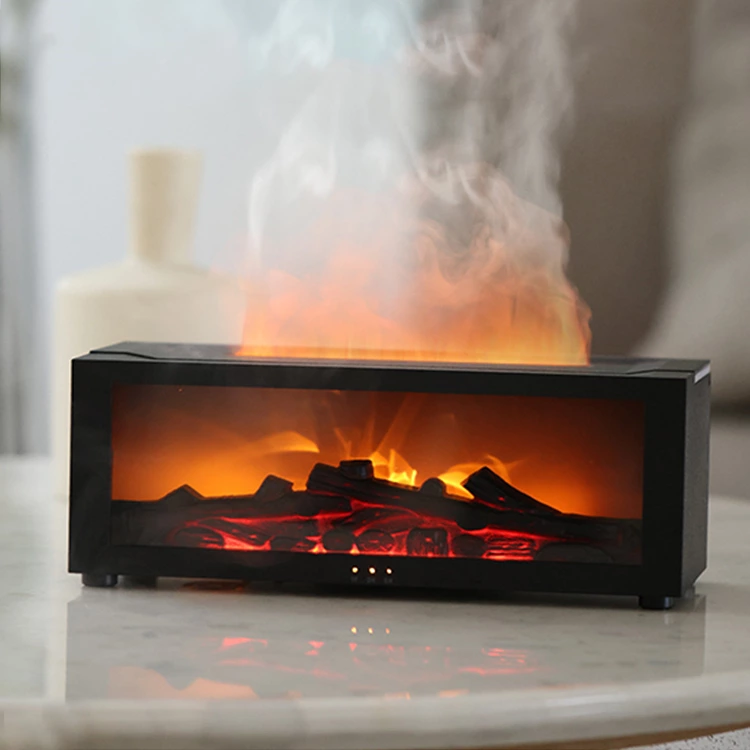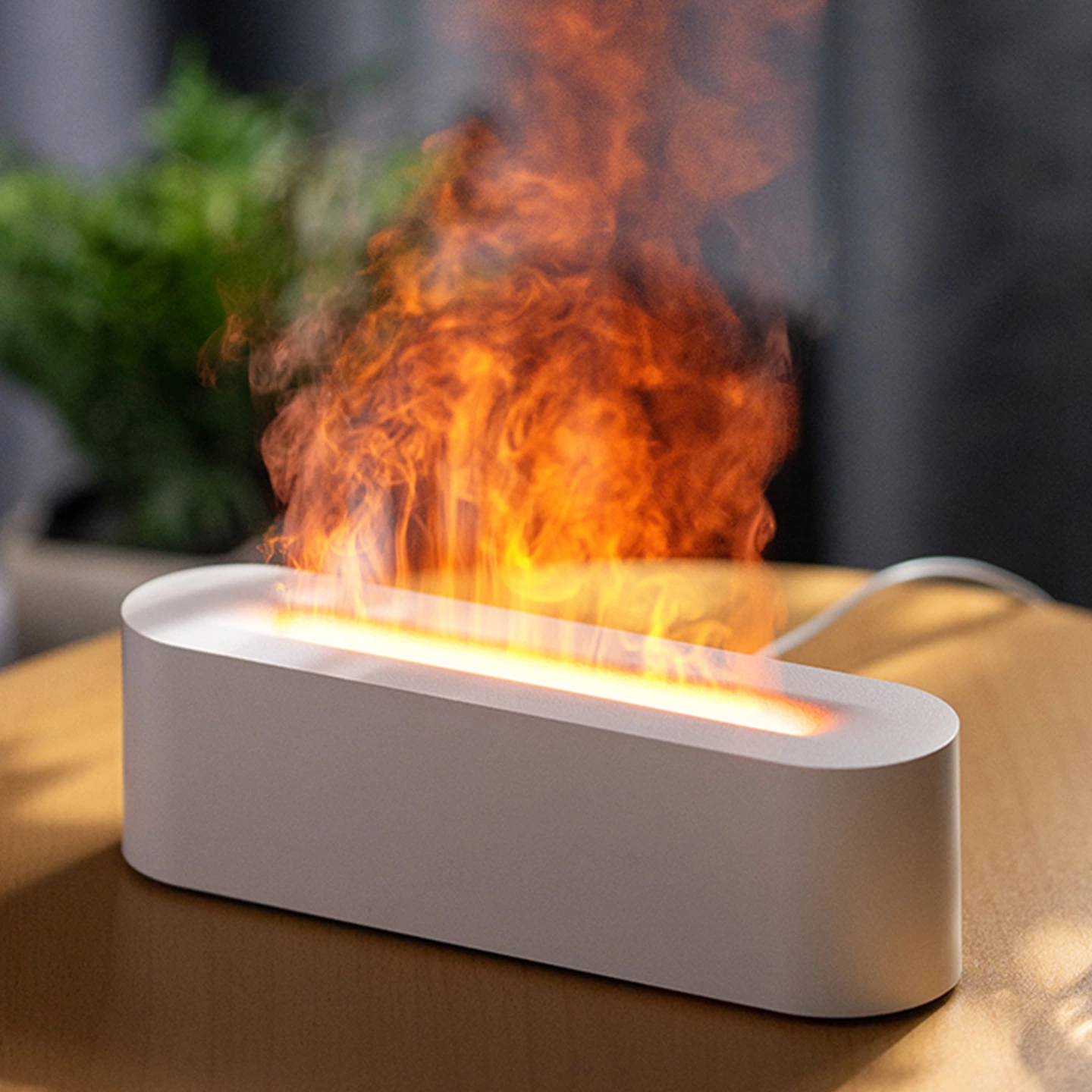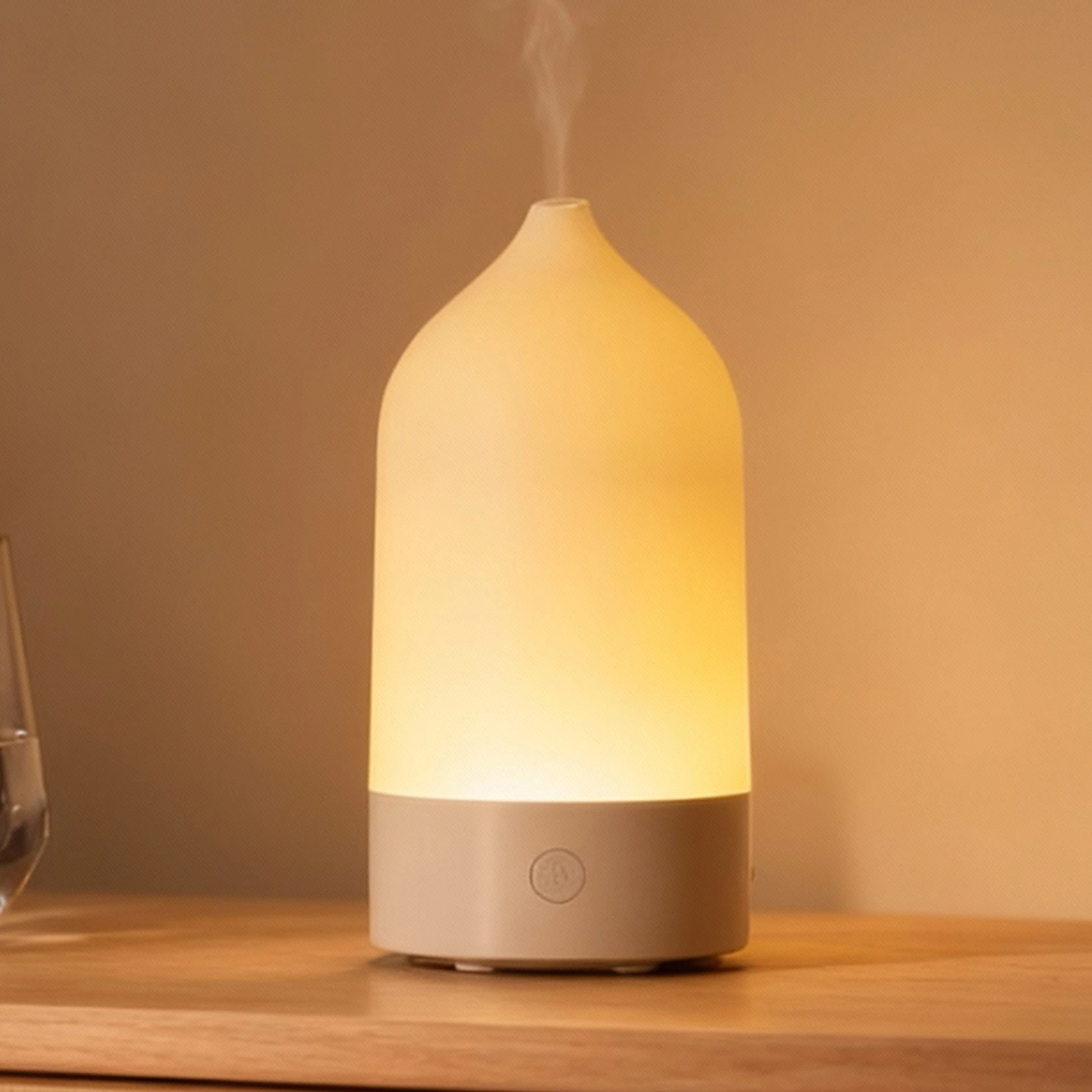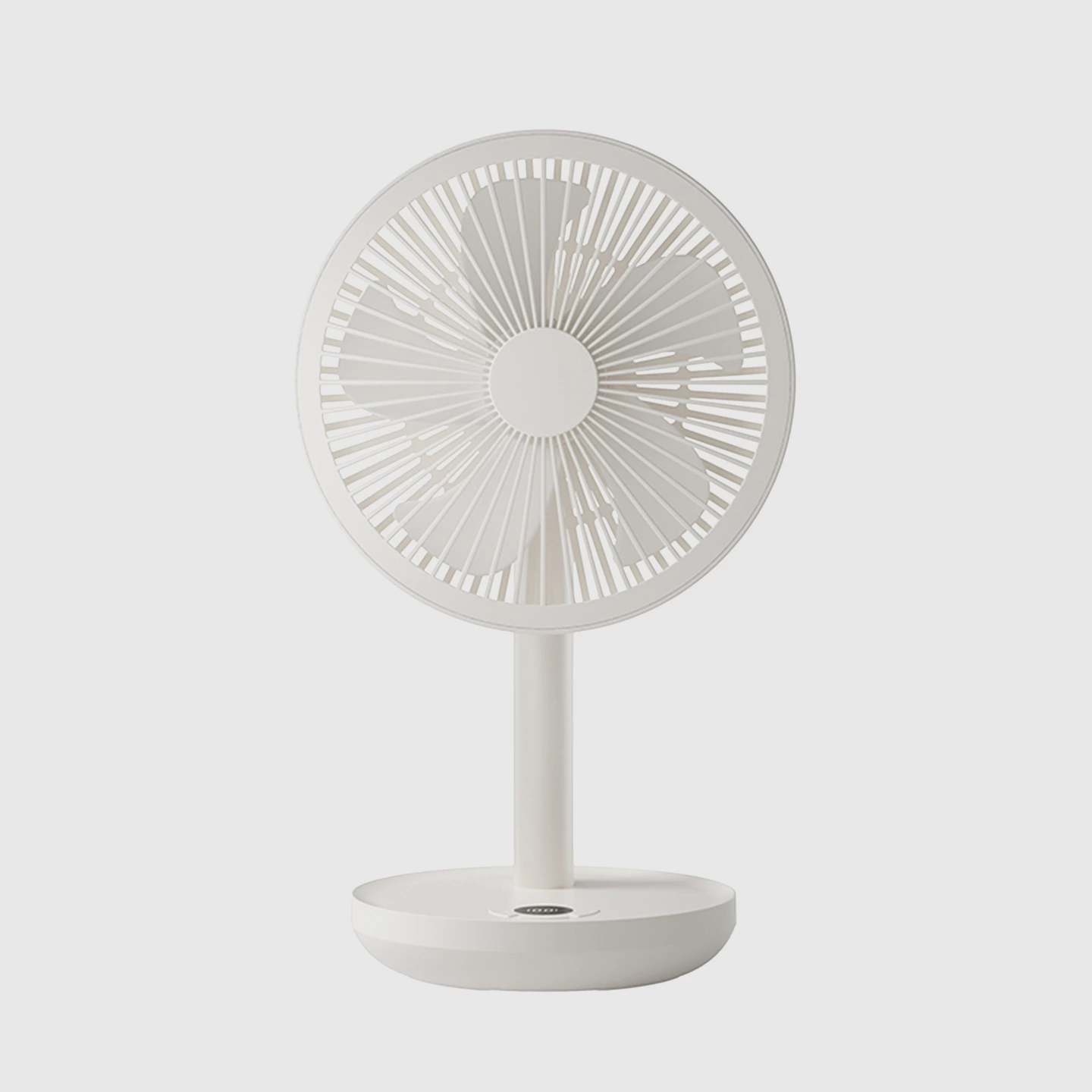Can Aromatherapy Diffusers Improve Sleep? A Comprehensive Guide
Sleep is essential for our overall well-being, and a lack of quality rest can negatively impact our health, mood, and productivity. While many methods are used to enhance sleep, aromatherapy diffusers have gained popularity for their ability to promote relaxation and create a calming environment. But can they really help improve sleep? In this article, we'll explore how aromatherapy diffusers work, the benefits they offer, and which essential oils are most effective for better sleep.
How Aromatherapy Diffusers Work
Aromatherapy diffusers are devices designed to disperse essential oils into the air in the form of a fine mist. By inhaling these tiny particles, the body can experience the therapeutic properties of the oils. There are different types of diffusers, including:
Ultrasonic Diffusers: These use ultrasonic vibrations to mix essential oils with water and release them as mist into the air.
Nebulizing Diffusers: These diffuse essential oils without water, using air pressure to break the oil into fine particles.
Evaporative Diffusers: These use a fan to evaporate essential oils, allowing them to be carried by the airflow.
Heat Diffusers: These use heat to evaporate essential oils and disperse them into the air.
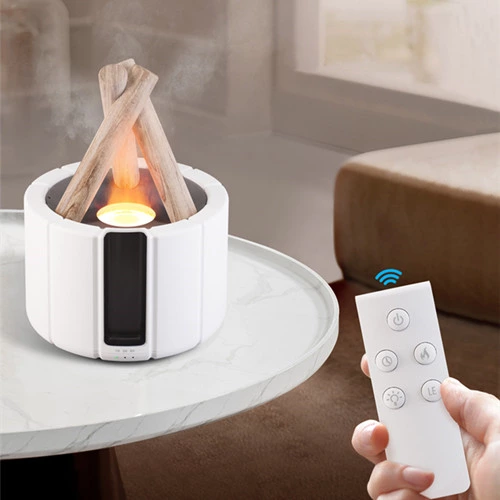
Each type of diffuser works to create an aromatic environment that can influence mood, relaxation, and sleep quality. The effectiveness of aromatherapy for sleep primarily depends on the essential oils used and their impact on the body's central nervous system.
Benefits of Aromatherapy for Sleep
Aromatherapy has been used for centuries to promote relaxation, reduce anxiety, and improve sleep quality. When using the right essential oils, an aromatherapy diffuser can offer the following sleep-related benefits:
1. Stress and Anxiety Reduction
One of the primary reasons people struggle with sleep is stress and anxiety. Aromatherapy can be incredibly effective in calming the mind and reducing anxiety before bed. Essential oils like lavender, chamomile, and frankincense have been shown to have sedative effects, helping to quiet the mind and prepare the body for restful sleep.
- Lavender: Often hailed as one of the best essential oils for sleep, lavender has calming properties that reduce anxiety and stress. It works by affecting the parasympathetic nervous system, which controls bodily functions during rest.
- Chamomile: This oil has a mild sedative effect that helps the mind and body relax. Chamomile is particularly helpful for people who suffer from insomnia or restlessness due to stress.
- Frankincense: Known for its grounding properties, frankincense helps reduce emotional tension, making it easier to fall asleep.
2. Improved Breathing
Certain essential oils can help clear nasal passages and improve breathing, which is especially beneficial for people who suffer from sleep apnea, snoring, or other respiratory issues. Oils like eucalyptus and peppermint can help open up airways, allowing for easier, more comfortable breathing during sleep.
- Eucalyptus: Known for its ability to clear nasal congestion, eucalyptus helps people with sinus issues breathe more easily while sleeping.
- Peppermint: Peppermint oil helps to open airways and reduce snoring, making it a good choice for individuals who struggle with obstructed breathing at night.
3. Creating a Relaxing Atmosphere
The ambient scent created by an aromatherapy diffuser can transform your bedroom into a peaceful oasis. Scents like ylang-ylang and bergamot are known to create a soothing atmosphere, helping you unwind after a long day. These scents can influence your mood, making it easier to transition into a state of relaxation.
- Ylang-Ylang: This oil has been used for centuries to promote relaxation and reduce blood pressure. Its sweet, floral aroma helps to create a calming environment.
- Bergamot: Bergamot has both calming and mood-lifting properties. It reduces feelings of anxiety and helps signal to your body that it’s time to wind down.
4. Establishing a Sleep Routine
Using an aromatherapy diffuser as part of a nightly routine can help signal to your brain that it's time to sleep. This creates a mental association between the calming scents and bedtime, making it easier for you to fall asleep consistently. Over time, this association strengthens, leading to improved sleep habits.
By diffusing essential oils at the same time every night, your body learns to recognize the scents as part of a pre-sleep ritual. This can be especially helpful for people who have irregular sleep patterns or trouble falling asleep.
Best Essential Oils for Sleep
Not all essential oils are created equal when it comes to promoting better sleep. Here are some of the most effective oils to diffuse in the bedroom to support relaxation and rest:
-
Lavender: Universally recognized for its calming properties, lavender is the go-to oil for sleep support. Its gentle scent helps ease anxiety and tension, making it easier to fall and stay asleep.
-
Chamomile: Chamomile is known for its sedative properties, helping to calm nerves and prepare the mind for sleep. It’s particularly useful for people who experience insomnia due to stress.
-
Cedarwood: Cedarwood oil has a grounding effect that helps soothe the mind and body. It has a warm, woody scent that creates a peaceful environment conducive to sleep.
-
Sandalwood: The rich, earthy scent of sandalwood has been shown to reduce anxiety and promote deep relaxation, making it ideal for use in a diffuser before bed.
-
Valerian: Valerian root has long been used as a natural remedy for sleep issues. The essential oil can have a sedative effect that promotes deeper, more restorative sleep.
Precautions and Considerations When Using Aromatherapy for Sleep
While aromatherapy diffusers can be highly beneficial, there are a few important considerations to keep in mind:
1. Proper Ventilation
Always ensure that your bedroom is well-ventilated when using a diffuser. This will prevent the scent from becoming too concentrated, which can lead to headaches or overstimulation. Diffusers that automatically shut off after a certain time period are ideal for overnight use.
2. Allergies and Sensitivities
Some people may be sensitive to certain essential oils. It’s important to start with small amounts of oil in your diffuser and monitor how your body reacts. If you experience irritation, discontinue use and try a different oil.
3. Oil Purity
Ensure that you are using 100% pure essential oils without synthetic additives. Some cheaper oils may contain fillers or artificial ingredients, which can reduce the effectiveness of the aromatherapy and potentially irritate the respiratory system.
How to Use a Diffuser for Better Sleep
To get the most out of your aromatherapy diffuser, follow these tips:
-
Set Up the Diffuser: Place the diffuser on a bedside table or dresser, making sure it’s in a spot where the mist will disperse throughout the room but not directly at your face.
-
Add Water and Oils: Fill the diffuser’s water tank to the recommended level and add a few drops of your chosen essential oil. Typically, 5–10 drops are sufficient, depending on the size of the room and the strength of the oil.
-
Diffuse Before Bedtime: Turn on the diffuser about 30 minutes before you plan to go to sleep. This gives the room time to fill with the calming aroma, creating the ideal environment for rest.
-
Use a Timer: Many diffusers have a timer feature or automatic shut-off, which is useful for overnight use. This ensures that the diffuser will turn off after a few hours, preserving the oils and preventing overexposure.
Conclusion: Aromatherapy for Sleep
Aromatherapy diffusers offer a natural, non-invasive way to improve sleep quality. By using calming essential oils like lavender, chamomile, and cedarwood, you can create a soothing environment that promotes relaxation and helps you fall asleep more easily. While aromatherapy is not a cure for chronic sleep disorders, it can be an effective tool for enhancing sleep hygiene and creating a more restful atmosphere.
Whether you’re dealing with stress, anxiety, or simply looking to establish a calming bedtime routine, incorporating an aromatherapy diffuser into your nightly ritual could be the key to better sleep.


